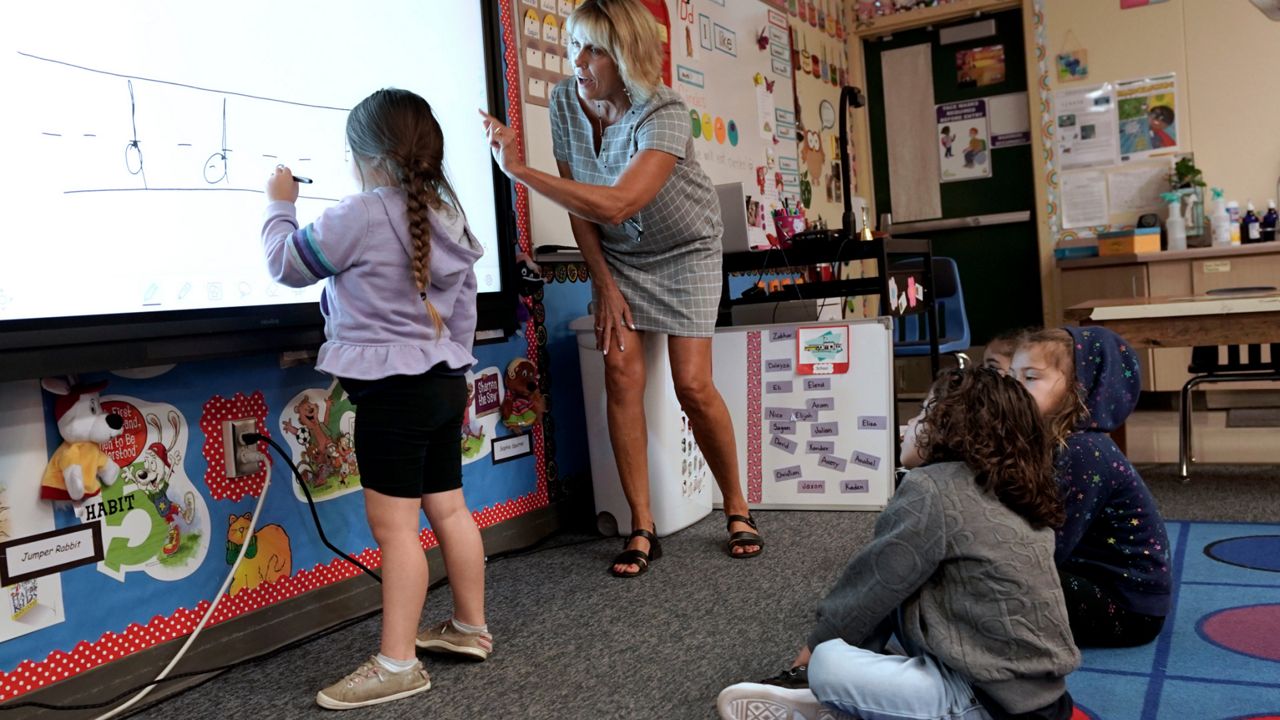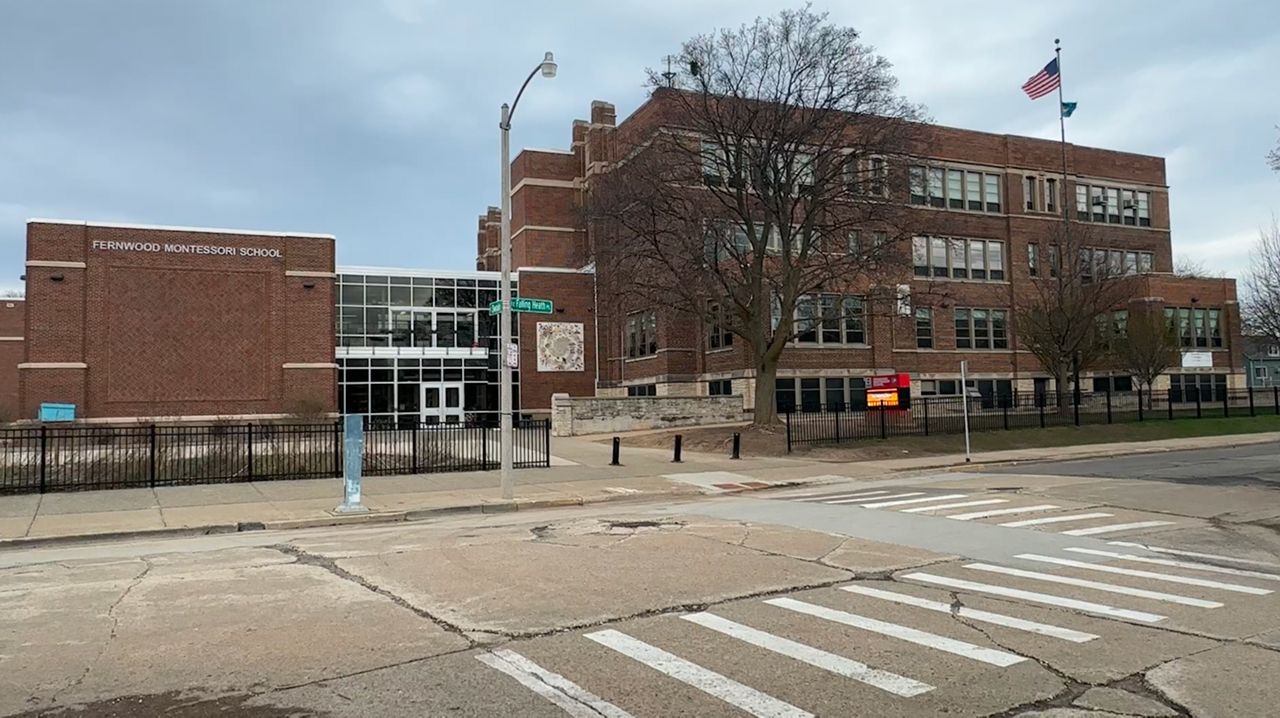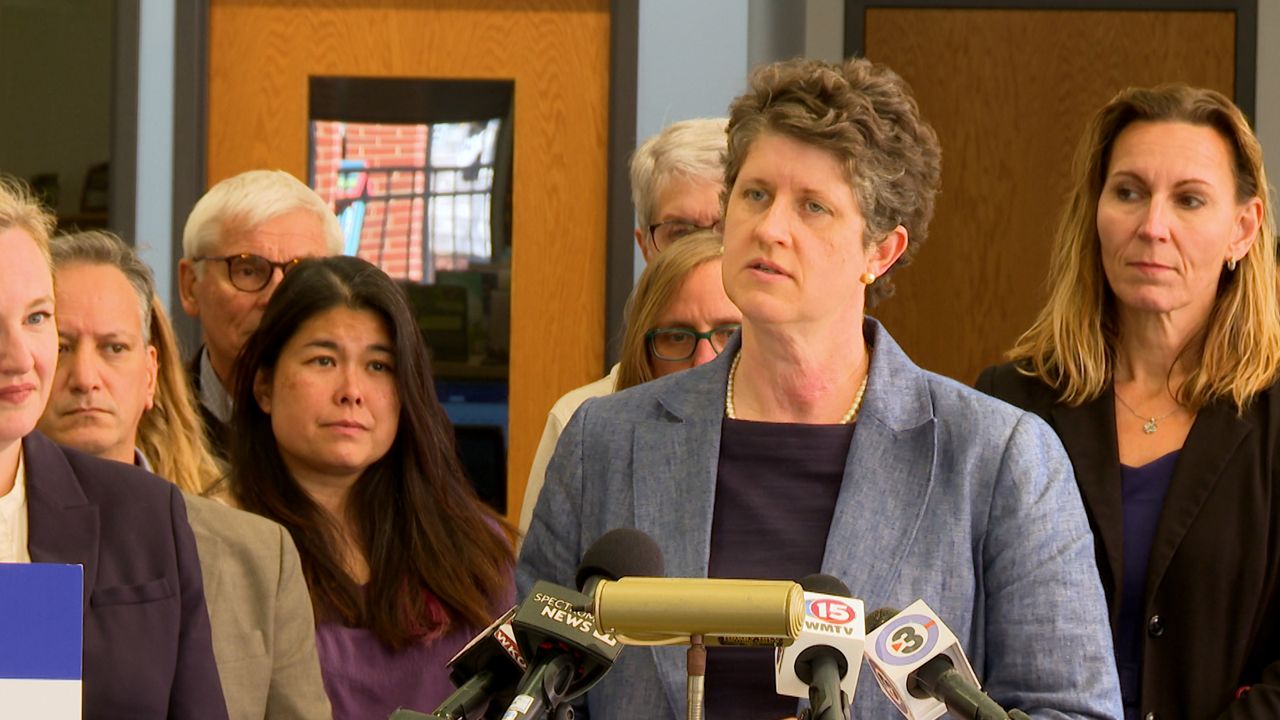WISCONSIN — The average Wisconsin teacher now makes less money than they did in 2009 when inflation is a factor, according to the most recent Wisconsin Policy Forum report.
While the physical price tag for a teacher’s median pay has risen from $51,069 in 2009 to $59,250 in 2023 (16%), inflation changes the equation.
After considering the change in consumer prices and buying power over the last decade, an inflation-adjusted salary for a teacher making median pay in 2009 would actually be $67,536 — making the 2023 salary a 12.3% decrease in pay.
Wisconsin Policy Forum officials said retirements and limited pay increases play a role in this decline.
One example officials point to is 2012, when a wave of teachers retired in reaction to Act 10’s passing. The law eliminated most collective bargaining rights for public employees. During the mass departure in 2012, median teachers’ salaries decreased by $467. Officials presume that’s because as older, higher-paid teachers left, they were replaced with younger teachers, who had a lower pay scale.
Over time, departures like this can curb the median salary, according to Wisconsin Policy Forum. That’s likely been the case in Wisconsin schools, where teachers are leaving the classroom at an average annual rate of 8%.
Stunted pay increases are the other factor.
Although Act 10 led to many retirements, it still allowed districts to increase their base wages to match inflation rates. However, Wisconsin Policy Forum found that hasn’t been the case. When officials projected what the median pay would be if it kept pace with inflation, they found a widening gap.
Median pay would be approximately $67,780 in 2023 if there had been increases for the rate of inflation starting in 2012. This is tied to the departure of older staff members who were paid more and also pay for remaining teachers, which “has not kept pace with inflation.”
Part of why these wages have not kept pace is due to a delicate balance in “supporting students and staff, balancing the budget, and protecting taxpayers.”
Teacher pay makes up a large portion of a school district’s spending and is often weighed against projected revenues. For years, state revenue limits — which dictate how much a school can raise from local property taxes and state general school aid — were tied to inflation.
However, since 2009, those limits have lagged behind inflation, meaning districts have fewer dollars to spend, especially on teacher salaries.
Decreasing student enrollment has only further tightened revenue limits for districts. At the same time as students have declined, the number of teachers has remained mostly static. That means districts are stretching dollars to cover teachers’ pay.
As a result, wage increases have not lined up with revenue limit increases, until 2022 and 2023; increases in wages in these years actually exceeded the revenue limit increases.
Several Wisconsin schools have approved some of the highest pay raises in years. Specifically, some approved a wage increase of 8%, the maximum wage increase allowable under state law this year, for 2024. Those districts include Milwaukee Public Schools, the Madison Metropolitan School District, Racine Unified School District and the Green Bay Area Public School District.
Despite these historic increases, many districts have relied on pandemic relief funds to help balance their budgets in 2024. Those funds run out next year, which could prove challenging for districts seeking to continue offering pay raises.
The 2023-25 state budget also limits revenue growth to below the rate of inflation. It offers a revenue limit increase per student of about 2.7% this year, which is far below the 8% maximum wage increase allowed in state law.
These factors will pose serious challenges for districts in the coming years, according to the Wisconsin Policy Forum. They may be forced to make some difficult decisions. Some already have.
Officials said Wauwatosa School District approved a 12% salary increase for 2024, but have already put together a task force to come up with options for a budget shortfall. Similarly, in Madison, officials said the increases for 2024 won’t be sustainable without state assistance or some sort of referendum on the ballot.
“These vexing issues suggest that the 2023-25 state budget has not resolved a series of tough issues affecting not only school finances but also teaching and learning, with ramifications ahead for students, the teaching profession, and taxpayers,” said Wisconsin Policy Forum in the report.









